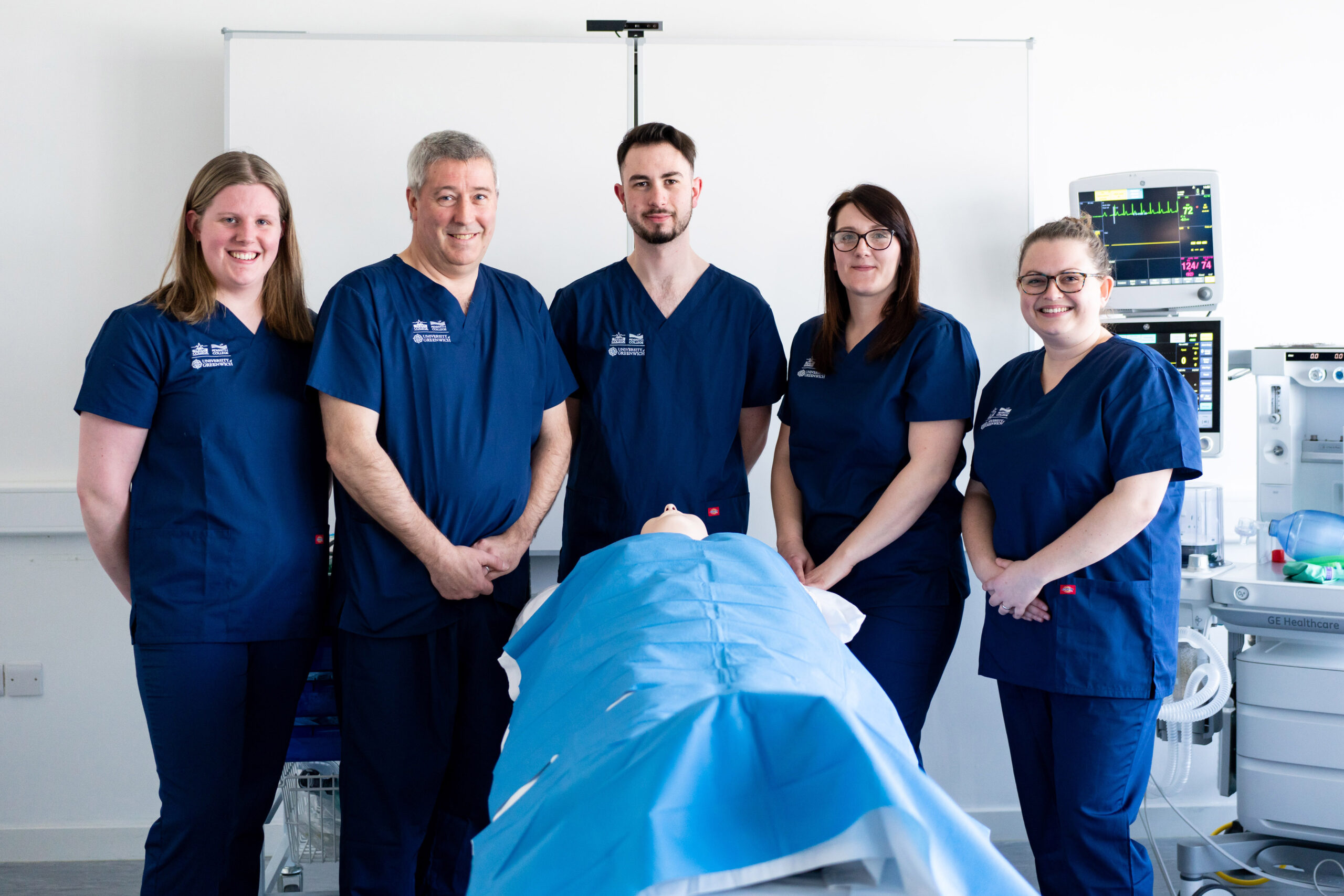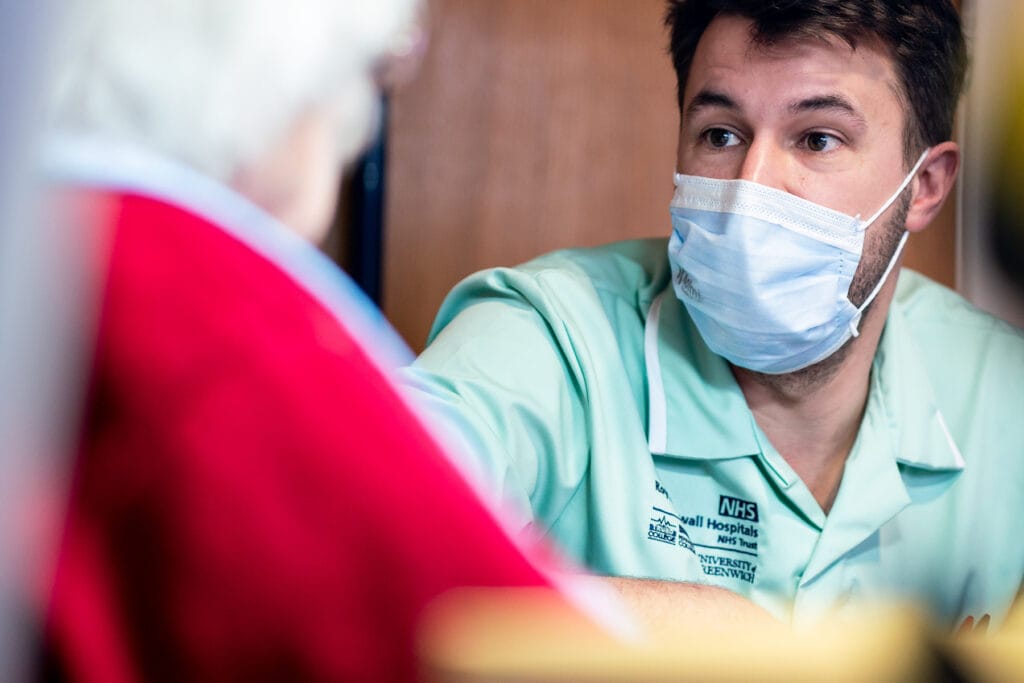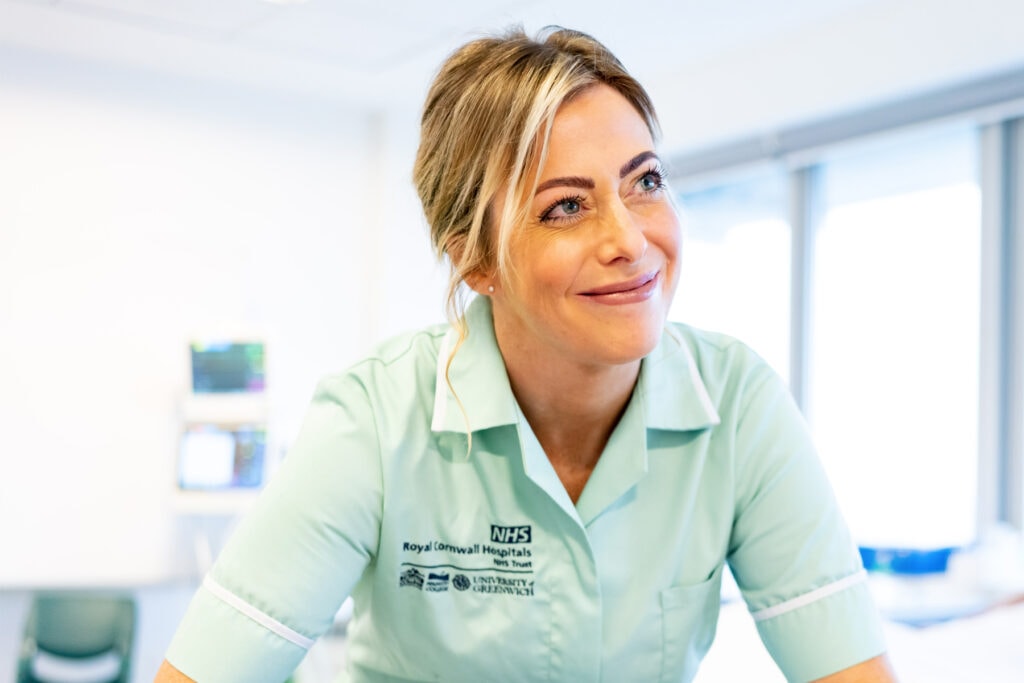New students starting in September: You can find more information about Induction days and submitting your GCSE results in our Start of Year Guide.
WHY CHOOSE THIS COURSE?
This apprenticeship standard is designed to equip individuals with the specialised skills and knowledge required to excel in the healthcare sector, specifically within operating theatres. This apprenticeship aims to develop professionals who can provide exceptional care to patients before, during, and after surgery. Apprentices will learn to prepare and manage anaesthetic equipment, assist anaesthetists in maintaining patient stability, and offer reassurance and support to patients during vulnerable times. They will be trained to select, prepare, and provide sterile surgical instruments, anticipate the needs of the surgical team, and manage clinical specimens correctly.
Apply for this course
Start date: 01/09/2025
TOP COURSE HIGHLIGHTS
Industry-standard facilities
Highly experienced tutors
Develop skills in line with industry needs
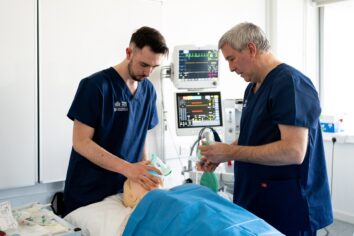
Learn from sector experts
Gain invaluable insights and hands-on experience from industry expert tutors who bring real-world knowledge and expertise to the classroom. Their guidance will help you develop the skills and confidence needed to excel in your chosen field.
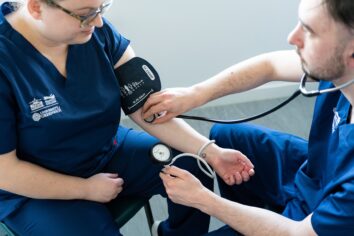
Develop work-related skills
Enhance your practical abilities and gain hands-on experience that directly translates to the workplace. This apprenticeship course focuses on real-world applications, ensuring you are well-prepared to meet the demands of your chosen career.
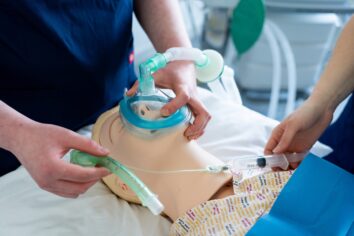
Enjoy professional surroundings
Immerse yourself in a dynamic and supportive environment that mirrors the professional world. This apprenticeship course provides access to state-of-the-art facilities and resources, helping you to thrive and feel confident in your career journey.
WHAT WILL I LEARN?
Knowledge This apprenticeship covers a comprehensive range of knowledge essential for providing high-quality patient care in surgical settings. Apprentices will gain an in-depth understanding of anatomy and physiology, pharmacology, and the principles of anaesthesia and surgery. They will learn about infection control, patient safety, and the management of clinical emergencies. Additionally, apprentices will study the ethical and legal aspects of healthcare, ensuring they are well-versed in maintaining patient confidentiality and consent. This knowledge base equips apprentices with the theoretical foundation needed to support patients effectively throughout their surgical journey.
Skills This apprenticeship enables learners to develop practical competencies in preparing and managing anaesthetic equipment, assisting anaesthetists, and providing support to patients during anaesthesia. They will learn to select, prepare, and provide sterile surgical instruments, anticipate the needs of the surgical team, and manage clinical specimens accurately. Apprentices will also gain expertise in monitoring patients’ vital signs in the post-anaesthetic care unit (PACU), ensuring smooth recovery and addressing any immediate post-surgery needs. These skills are crucial for ensuring patient safety and delivering high-quality care in a highly technical and dynamic environment.
Behaviours Apprentices are expected to demonstrate key behaviours such as confidence, compassion, and competence. Apprentices are expected to make effective judgements and take accountability for their decisions. They must use evidence-based practices to continually improve patient outcomes and maintain high standards of care. Additionally, apprentices are responsible for their own professional development and support the growth of their colleagues through continuous learning and collaboration.
Typical Duties that an Apprentice will carry out in the workplace:
- Anaesthesia Phase: Apprentices will prepare and manage anaesthetic equipment, assist anaesthetists in securing and maintaining the patient’s airway and physiological stability.
- Surgery Phase: They will select, prepare, and provide sterile surgical instruments to the surgical team, anticipate the needs of the surgeons, and ensure the correct management of clinical specimens.
- Post-Anaesthetic Care: Apprentices will monitor patients’ vital signs in the post-anaesthetic care unit (PACU), ensuring a smooth recovery and addressing any immediate post-surgery needs.
WHERE WILL IT TAKE ME?
Completing the Operating Department Practitioner Apprenticeship opens up a range of exciting career opportunities within the healthcare sector. As a qualified Operating Department Practitioner (ODP), you can work in various settings, including operating theatres, intensive care units, and emergency departments. With experience, you can progress to roles such as team leader, senior ODP, or theatre manager, overseeing the day-to-day operations of an operating theatre unit.
Assessment Arrangements
The End-Point Assessment (EPA) is a crucial component of apprenticeship standards, designed to evaluate an apprentice’s knowledge, skills, and behaviours (KSBs) acquired during their training. The EPA typically includes a combination of practical assessments, professional discussions, and portfolio reviews, ensuring apprentices are fully prepared for their chosen career. This assessment is carried out independently by an End-Point Assessment Organisation (EPAO), ensuring impartiality and fairness. Employers play a key role in confirming readiness for the EPA, supporting apprentices throughout the process to achieve successful outcomes.
EPA (End Point Assessment) methods
- This apprenticeship has a fully integrated EPA.
- The EPA starts with the examination board and finishes when the AEI makes the required declarations to the NMC. The apprentice is not required to carry out any additional assessments.
- This process typically takes place within 1 month of the training plan being completed by the apprentice.
Entry Requirements
From the start of your apprenticeship, you will need to be employed full-time (30 hours or more per week) in an appropriate healthcare setting.
If you are not already employed in a health or social care setting, you should contact NHS Trusts and other healthcare organisations in your area to check if they are recruiting apprentices.
For entry, you will need to have 112 UCAS tariff points made up from:
- A-Levels
- BTEC National Awards
- International Baccalaureate
- Access to Higher Education Diploma
Or
- Diploma in Health and Social Care (level 3)/NVQ (level3)
Or
- Foundation Degree
You will also need at least three GCSEs at grade 4/C or above including mathematics and English or a recognised level 2 equivalent.
Where English is not the applicant’s first language, the applicant should have successfully completed an IELTS test with a score of 7.0 and no element below 6.5.
Consideration will be given to applicants with substantive and relevant work experience.
Occupational health and DBS (Disclosure and Barring Service) checks are carried out by the employer. Completion of the Care Certificate is desirable prior to starting the programme, as completion of the Care Certificate within 3 months of commencing the programme is a requirement of the Apprenticeship Standard.
Information & Support
The course fees are shared between the government and employers
Further costs may include (but are not limited to):
- Resources: you may need to purchase books for your studies, as well as specific computer software (estimate, £150 per year)
- Memberships: applying for membership of a professional body at the end of the course may incur further costs.
Additional Information
During the programme you will complete a minimum of 1800 hours in practice during the 3-years full time.
Placement is an opportunity to relate theory learned in the programme to practice and to develop the professional, team working decision-making skills which are required of an Operating Department Practitioner.
Want to talk to someone?
Do you have a question that we haven't answered so far? Talk to our admissions team. We're here Monday-Friday 8.30am-4.30pm.
